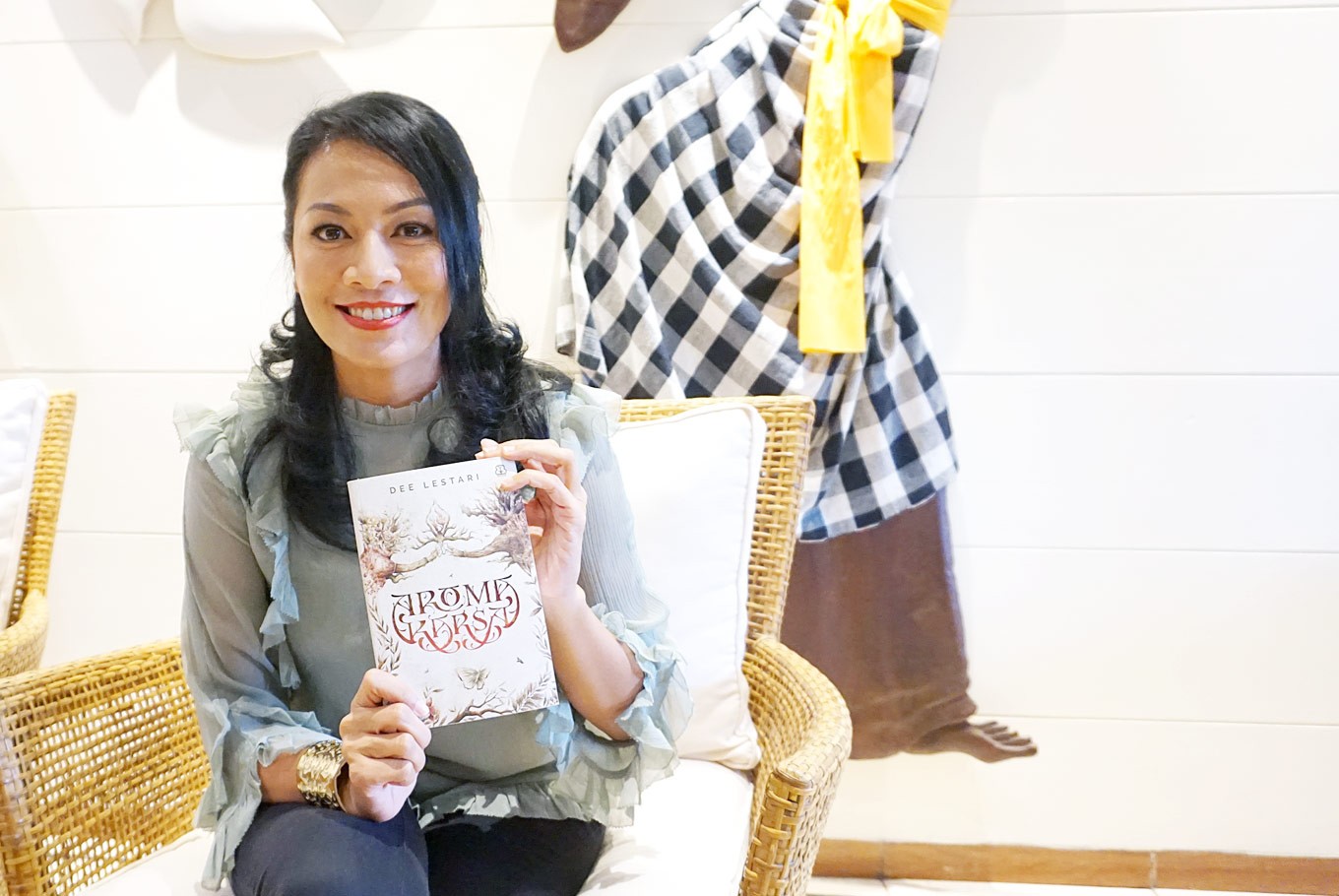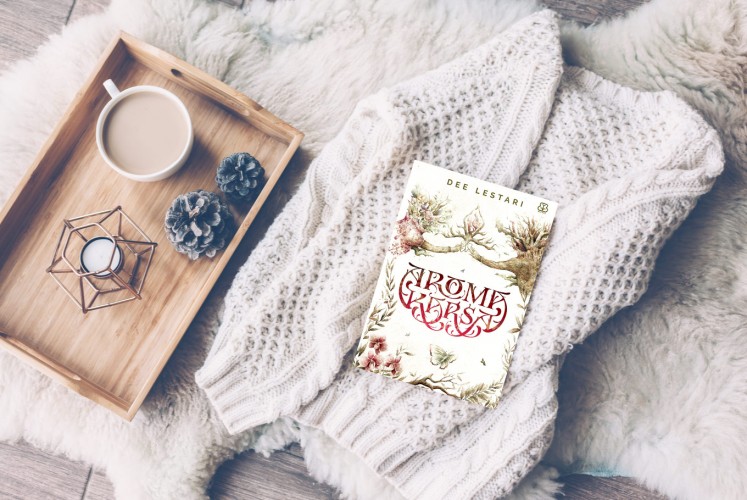Popular Reads
Top Results
Can't find what you're looking for?
View all search resultsPopular Reads
Top Results
Can't find what you're looking for?
View all search resultsDee Lestari and her most challenging novel yet
Aroma Karsa, which is Dee’s 12th novel, tells a story of a young man named Jati Wesi who has an extraordinary sense of smell.
Change text size
Gift Premium Articles
to Anyone
A
roma Karsa, which is Dee’s 12th novel, tells a story of a young man named Jati Wesi who has an extraordinary sense of smell. Jati’s ability to smell and perceive odors is higher than average, a condition scientifically known as hyperosmia.
Ironically, Jati grew up in Bantar Gebang landfill in Bekasi, West Java, home to a large waste processing plant that is notorious for its foul smells. Jati works many odd jobs, but the job that he is most proud of is that of perfume maker.
Over the course of the novel, readers join Jati’s adventures, from meeting a wealthy businesswoman named Raras Prayagung and her daughter Tanaya Suma, who has the same ability as Jati, to searching for the mythical flower with magical powers dating back to the Majapahit era called Puspa Karsa. Legend has it that this mysterious flower can control one’s will, and can only be identified through its unique scent.
The main theme of the novel is scents and the sense of smell, a subject which was previously unfamiliar to Dee. She is known for the immensely popular science fiction series Supernova, which to date consists of six books. In Aroma Karsa, Dee stays true to her roots in science fiction.
For Aroma Karsa, Dee conducted both desk and field research. With University of Indonesia (UI) lecturers, she studied Javanese calligraphy and epigraphic records from the Majapahit era, which she references in her novel.
To further grasp the idea of fragrance making, Dee took a perfumery course in Singapore. She also visited Mount Lawu in Central Java for field research, one of the sites featured in Aroma Karsa, and Bantar Gebang.
“I conducted lengthy research to write Aroma Karsa and I learned many new things that I never even thought of before,” Dee said recently.
For example, she learned that ambergris, a substance produced in the digestive system of sperm whales, was one of the most expensive and sought after material by high-end perfume makers.
The writing process was even more of a challenge, Dee said. Scent, she explained, was difficult to describe in writing, unlike sight. She even learned theories of writing about smells.
Brand new copy: Author Dewi 'Dee' Lestari poses during a press conference for her new novel, Aroma Karsa. (Shutterstock/File)“Unlike sight, we can’t see scent. It’s difficult to describe with words. So as a writer, I saw this as an interesting challenge. Writing this novel has expanded my vocabulary.”
Not only did she tackle a largely untouched theme, Dee also challenged herself by participating in the digital revolution. Aside from the traditional hard copy release, she also released Aroma Karsa digitally by chapter over the last few months in a style locally known as cerbung (a serialized story).
Cerbung was popular in the 1980s and the 1990s when serialized stories were published in newspapers and magazines. Readers must wait a day or a week to know how their beloved story progresses.
“I wanted the readers to experience this; waiting for the next chapter and getting excited for the day when a new chapter comes. It’s an interesting experience,” Dee said.
The mother of two acknowledged that converting traditional hard copy readers into digital readers was a challenge. Many readers still opt to have a book in their hand and smell its scent rather than going online and reading it on their gadgets.
Despite Dee’s worries, many readers tuned in to her digital release of Aroma Karsa. The cerbung was released twice a week exclusively on digital platform bookslife.co and recorded up to 2,000 subscribers. Each release contained one part, which cost readers just Rp 5,000 (36 US cents), and consisted of three chapters.
Dee also created and participated in a closed group on Facebook to discuss the chapters with readers.
“The key to attract readers to cerbung is by giving them new, interesting material. So they have no choice but to go online and read,” Dee laughed.
It seems that overcoming all of her challenges paid off. In Aroma Karsa, Dee writes about the science of smell, incorporating it with history, sprinkled with a slice of life, in a way that captivates readers.
The way Dee describes the journey of her fictional characters in this novel is beautiful and almost poetic.
Readers not only experience the characters’ adventures — which are magical, surreal and hits close to home — but are also educated.
The 696-page novel is a page turner; the neat plot combined with the looming mystery of Puspa Karsa leaves readers wanting more.
“This has been my most challenging novel yet, but it has been a fun challenge and I enjoyed the journey,” she said.
________________________
Aroma Karsa
Written by: Dewi “Dee” Lestari
Format: Digital e-book
Number of pages: 696
Available at: bookslife.co












